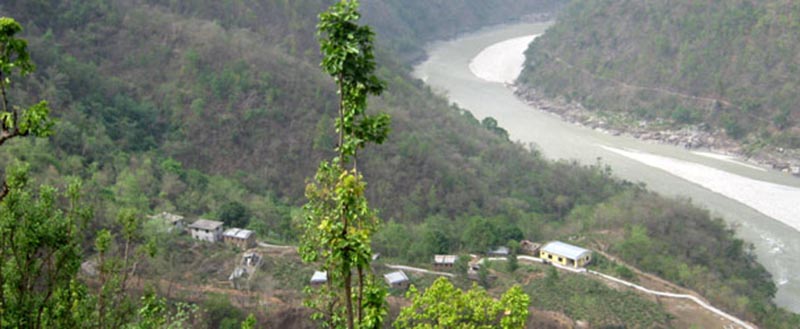Key differences of Pancheshwar project unresolved
Kathmandu, February 28
The two-day meeting between the experts of Nepal and India to discuss on the implementation of the Pancheshwar Multipurpose Project (PMP) concluded today with no concrete progress on key differences between the two nations on the project.
Talking to The Himalayan Times after the meeting, Prabin Aryal, spokesperson for the Ministry of Energy, Water Resources and Irrigation, said that though detailed discussions were carried out on implementing the project, no concrete understandings have been made on different issues including the downstream benefits of the project, water sharing, consumption and price, investment, irrigation and energy production capacity of the multipurpose project.
Nepal and India have been at odds regarding the detailed project report (DPR) since long. The Indian side has been laying claim to the water in the lower Sharada dam, while Nepal has been demanding that it should get 50 per cent of the water based on the principles of equal-sharing.
Similarly, though Nepal has been claiming its right to 50 per cent of the total water, India has been denying it constantly.
Though the meeting was expected to finalise the detailed project report of the project, it was unable to do so.
On April 27 last year, the secretary-level meeting between Nepal and India had extended the deadline to prepare DPR of the Pancheshwar Multipurpose Project to December.
The project is located at the Mahakali River, which is the border of Nepal and India in the western region of Nepal. Talks on the project were initiated at least 23 years ago, but there has been lack of progress due to various issues.
The Pancheshwar Multipurpose Project was conceived under the Mahakali Treaty between Nepal and India in 1996. Apart from generating electricity, the project will provide irrigation facility to 0.13 million hectares of land in Nepal and 0.24 million hectares of land in India in addition to other incidental benefits, including flood protection.
Meanwhile, Aryal said that the next meeting between the experts of the two countries, which is yet to be decided, will hopefully reach consensus on all the aforementioned issues.






